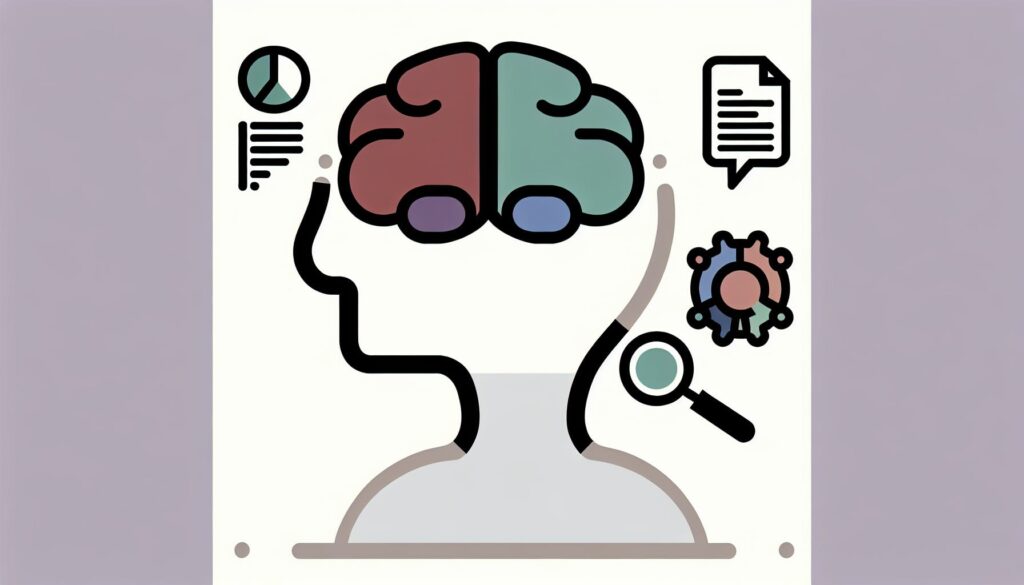Most readers would likely agree that mastering data analysis skills can seem like an intimidating prospect.
Yet having the right technical, analytical, and communication abilities paves the path to becoming an effective data analyst.
In this post, you’ll discover the essential competencies aspiring analysts should develop, from SQL and Python proficiency to statistical modeling and storytelling with data.
Introduction: The Data Analyst’s Toolkit Unveiled
Data analysts are invaluable in today’s data-driven world, helping organizations across industries gain valuable insights from complex information. As demand for data analysts continues to rise, it’s important to understand the core skills and competencies needed to excel in this career path.
Defining the Data Analyst Role
Data analysts are responsible for:
- Collecting, cleaning and organizing data from various sources
- Performing quantitative and qualitative analysis to spot trends, patterns and insights
- Building predictive data models and machine learning algorithms
- Creating visualizations and reports to communicate findings
- Making data-driven recommendations to stakeholders
In summary, data analysts help make sense of data to solve problems and identify new opportunities. Strong analytical thinking and communication skills are vital.
Growing Demand for Data Analysts
- The US Bureau of Labor Statistics projects over 300,000 new data analyst roles will emerge between 2020-2030 – a 25% increase.
- LinkedIn lists data analyst as one of the top 5 emerging jobs, with over 6,500 job openings currently.
- High demand exists across healthcare, finance, retail, technology and manufacturing sectors.
Data impacts every industry now. As organizations realize the value quality data analysis provides for strategic decisions and growth, data analysts have become invaluable team members.
Mastering key technical and analytical skills is essential to remain relevant in this evolving landscape. The next section will reveal the core competencies every aspiring data analyst should develop.
What is requirement for data analyst?
To become a data analyst, you typically need:
A Bachelor’s degree
A Bachelor’s degree in a quantitative field like statistics, mathematics, computer science, information management, or economics is essential. These degrees equip you with the necessary analytical and technical skills for working with data. Some useful courses include:
- Statistics – Statistical modeling and analysis
- Mathematics – Algebra, calculus
- Computer Science – Programming languages like SQL, Python, R
- Economics/Business – Understanding industry practices
Technical skills
You need working knowledge of tools and programming languages used by data analysts:
- Spreadsheets – Excel
- Statistical programming languages – R, Python
- Query languages – SQL
- Data visualization tools – Tableau
Critical thinking
Data analysts should have the analytical ability to collect, process and interpret complex data. Critical thinking helps make sound judgments from data insights.
Communication skills
Being able to communicate technical information and data insights clearly to stakeholders is vital for a data analyst. You need to contextualize data visually and verbally for better decision making.
Postgraduate degree
While not always required, having a master’s degree focused on data analytics, data science or statistics helps strengthen your technical capabilities. Common postgraduate options include a Master of Science (MS) in Analytics or Data Science.
So in summary – strong technical competence, critical thinking and communication skills in addition to relevant formal education builds a solid foundation for a career in data analytics. Many aspiring data analysts also take online courses, get certified and do internships to gain practical experience. With diligent upskilling efforts, data analysis skills needed for professional roles can be achieved.
Does data analyst require coding?
Data analysts are not typically required to have coding skills for most positions. However, having some basic coding abilities can be beneficial.
Here’s a quick overview:
Do data analysts need to code?
-
Most entry-level data analyst jobs do not require coding skills. The focus is more on understanding data and using Excel, SQL, and business intelligence tools for analysis.
-
However, even basic SQL knowledge can be useful for extracting and manipulating data. Learning SQL queries allows analysts to pull the data they need for analysis.
-
As data analysts advance in their careers, some coding becomes more common. Python and R are popular languages for more complex analysis and modeling beyond basic Excel features.
When coding is advantageous
While optional, analysts who can code have key advantages:
-
Automating repetitive tasks – Coding allows analysts to streamline frequent data tasks like cleaning, merging datasets, generating reports, etc. This improves efficiency.
-
Custom analysis – With languages like Python and R, analysts can build custom models, visualizations, and analytics tailored to business needs. This adds value.
-
Career advancement – Coding skills allow analysts to progress into more advanced roles like data scientist and machine learning engineer. These roles almost always require coding expertise.
So in summary – coding gives data analysts flexibility and versatility but is not an absolute requirement, especially for entry-level positions. With technology advancing quickly though, basic coding knowledge is becoming increasingly useful.
What skills do you need to be a data quality analyst?
short
Technical Skills
As a data quality analyst, you need strong technical skills to work with data infrastructure and analytics tools. This includes skills like SQL programming, data modeling, ETL processes, and data analysis with tools like Python and R. You should be comfortable querying databases, manipulating large datasets, and understanding data structures.
Compliance Knowledge
An understanding of data governance frameworks and privacy regulations is also key. This ensures you properly monitor and enforce data policies, standards, and compliance rules within an organization. Skills needed here include knowledge of regulations like GDPR and CCPA.
Statistical Analysis
Data quality analysts must have statistical analysis skills to assess data accuracy and spot anomalies. You should be able to apply metrics, quantify patterns, and interpret statistical outputs to identify data issues. This allows for continuous data cleansing and quality improvements.
Collaboration Abilities
Since data quality analysts often collaborate with teams like IT, analytics engineers, and business leaders, soft skills are equally important. These include communication abilities, presenting findings, and building relationships to drive consensus on data quality protocols across departments.
How do I become a data analyst with no experience?
Becoming a data analyst without prior experience may seem daunting, but it is very achievable with the right strategy.
Here are some practical steps you can take to kickstart your career change:
Get the Essential Skills
The core technical abilities needed for data analysis include SQL, Excel, statistics, data visualization, and some programming like Python or R.
You can gain these skills through online courses, bootcamps, or by working through tutorial books. Aim to get hands-on practice analyzing real datasets.
Build a Portfolio
Creating your own data analysis projects is crucial for building an impressive portfolio, even with no work experience yet.
Analyze open datasets from sites like Kaggle and document your process in a GitHub repository or personal blog. Showcase both technical skills and analytical thinking.
Highlight Transferable Skills
Soft skills like critical thinking, problem solving, attention to detail and communication abilities are highly valued in data analysis. Emphasize how these transfer over from past experiences.
Network and Find Opportunities
Attending local tech meetups and data conferences lets you make connections and discover entry-level openings you may not find posted online.
Informational interviews can provide insights into company needs. With perseverance, you can get that crucial first data analytics role.
The key is mastering in-demand data skills through self-learning, showcasing abilities via projects, and tapping networks to uncover opportunities. With the right strategy, transitioning into data analysis without direct expertise is absolutely possible.
sbb-itb-0c864d8
Master Data Analyst Skills: Analyst Technical Skills Explained
This section will break down the essential technical proficiencies needed to succeed as a data analyst. Mastering these skills will establish a strong foundation to unlock lucrative career opportunities.
Programming Languages Like Python and R
Fluency in Python and R is imperative for data analysts today. These open-source programming languages contain robust libraries tailored specifically for data preparation, statistical modeling, machine learning, and data visualization.
Python is often noted as the most versatile programming language used by data analysts. Its simple syntax enables rapid prototyping and development. Python also integrates seamlessly with big data platforms like Hadoop and Spark. Key Python libraries like NumPy, Pandas, Matplotlib, and Seaborn should be part of every analyst’s toolkit.
Similarly, R offers unmatched statistical capabilities through packages like dplyr, ggplot2, caret and more. Its domain-specific language design centered around statistical computing gives R a slight edge over Python for modeling and analytics. R also connects better with commercial BI tools.
As data analyst skills expand to incorporate more advanced techniques like machine learning and AI, proficiency in both Python and R will be highly advantageous. While individual preferences may vary, having exposure to both languages will make analysts better positioned for diverse data challenges.
SQL and Database Knowledge
With the exponential growth of data, SQL skills are mandatory for data analysts seeking to unlock insights. SQL (Structured Query Language) is the universal language used to access, manipulate, and analyze data stored in relational databases.
Data analysts use SQL queries to connect to databases, join disparate data sources, filter large datasets, aggregate metrics, uncover trends and derive actionable intelligence in a scalable manner. SQL interfaces seamlessly with visualization tools to build interactive dashboards.
Beyond basic SELECT, WHERE, and JOIN statements, understanding advanced SQL concepts like window functions, Common Table Expressions (CTEs), and stored procedures will make analysts more self-sufficient.
Data Visualization and Dashboarding
Once insights are generated, data visualization and dashboarding skills enable analysts to clearly communicate findings to stakeholders effectively.
Tableau leads the market with an intuitive drag-and-drop interface to build insightful, interactive dashboards. The software connects directly to almost any database and spreadsheet. Analysts can produce rich visualizations encompassing charts, graphs, and maps quickly without coding. Tableau also offers predictive modeling capacities through its Einstein engine.
Open-source alternatives like Apache Superset provide similar analytic features. Superset can render custom visualizations created using D3.js and Plotly among other libraries. Its integration with Python enables analysts to incorporate advanced analytics seamlessly.
Data storytelling prowess is greatly enhanced through data visualization mastery. Learning leading tools like Tableau, Power BI, and Apache Superset should be prioritized.
Core Data Analysis Skills: Meaning and Application
Data analysts need to have strong analytical thinking and problem-solving skills to be effective in their roles. This involves understanding business goals to ask the right questions of data, cleaning and preparing data for analysis, and leveraging statistical modeling techniques to derive meaningful insights. Developing expertise across these core competencies is key for aspiring data analysts.
Asking the Right Business Questions
Data analysis starts with formulating the right business questions. Data analysts collaborate with stakeholders across the organization to understand goals, objectives, and challenges. This context allows analysts to identify how data can provide valuable skills needed to be a data analyst insights. Rather than starting with the data itself, skilled analysts anchor their work in larger business needs.
Key abilities in this area include:
- Business acumen to grasp objectives and decision-making processes
- Communication skills to consult with diverse groups
- Critical thinking to determine what questions data can answer
With the right business questions framed, analysts can approach data gathering and modeling with purpose.
Data Wrangling and Cleansing Skills
Real-world data is often incomplete, inconsistent, or inaccurate. Before statistical analysis can occur, data analysts need to collect, combine, cleanse, and transform source data into an optimized analytical dataset. This crucial step is known as data wrangling.
Skills needed for quality data wrangling include:
- Identifying relevant sources of data across systems
- Assessing data quality and filtering unreliable data
- Standardizing formats like dates and names
- Managing missing values and duplicates
- Enriching sparse data by merging datasets
With refined, unified data, analysts apply various data cleansing techniques to improve quality. This prepares the dataset for reliable analysis.
Statistical Modeling and Analysis Proficiency
Once data is ready, analysts leverage various statistical techniques and modeling to uncover skills needed to be a data analyst trends, patterns, and insights. This involves testing hypotheses, developing models, and determining statistical significance to quantify relationships in the data and yield actionable business intelligence.
Key skills in statistical analysis include:
- Structuring data for statistical evaluation
- Applying descriptive and inferential statistical methods
- Developing predictive models with machine learning algorithms
- Validating model accuracy through rigorous testing
- Effectively communicating data limitations and statistical findings
By mastering statistical modeling, data analysts extract maximum value from data to enhance business decision making. Developing expertise in analytical methods and techniques is central for aspiring data analysts looking to advance their skills needed to be a data analyst.
Communication as a Data Skill: Conveying Insights with Clarity
Data analysis is useless without effective communication. Data analysts must convey complex insights clearly to decision-makers to drive business impact. This requires strong presentation and storytelling abilities.
Storytelling with Data
Data analysts need to transform data into compelling narratives. Key aspects include:
-
Logical flow: Arrange critical information in a logical manner. Lead with key takeaways, provide necessary context, then detail supporting arguments.
-
Visualization: Enhance data interpretation with charts and graphs tailored to your audience. Ensure visuals simplify complex data relationships.
-
Annotation: Call out key data directly within visuals using labels, arrows, and highlighting. Draw attention to the most meaningful trends.
-
Audience focus: Shape content around audience needs and knowledge levels. Simplify terminology for non-technical stakeholders.
With thoughtful organization and design, data analysts make data engaging and memorable. Impactful presentations turn numbers into intuitive narratives.
Translating Numbers into Impact
Data analysts must also quantify insights into tangible business values. Strategies include:
-
Revenue opportunities: Connect data directly to potential revenue, whether from optimizing sales funnels or better cross-selling.
-
Cost savings: Highlight areas where data can reduce budgets, like flagging supply chain inefficiencies.
-
Risk mitigation: Demonstrate how insights help avoid losses in revenue, reputation, compliance, etc.
-
Enhanced experience: Link data to concrete experience improvements, like increased customer satisfaction scores.
By grounding data in real-world impact, analysts demonstrate the value of their work. Numbers become more compelling when tied to monetary returns, cost reductions, and strategic objectives.
Tailoring Messaging for Audience Needs
Data analysts shape communication based on the needs of diverse stakeholders:
-
Executives want top-level views of performance and strategy. Tailor messaging to strategic goals.
-
Marketing and Sales need insights on optimizing campaigns and funnels. Focus on actionability.
-
Engineers and Product Teams prefer granular technical detail. Highlight opportunities to incorporate insights.
Understanding stakeholder perspectives allows analysts to frame data narratives effectively. Customizing communication ensures each audience can readily apply insights for maximum benefit.
With strong presentation abilities, data analysts translate complex data into simple, compelling business stories. They quantify opaque numbers into tangible impacts aligned to stakeholder priorities. Honing these “soft” skills accelerates adoption of data to drive transformative change.
Becoming Industry-Ready: Skills Required for Data Analyst Internship
Commitment to Continuous Learning
As technology rapidly evolves, data analysts must commit to continuous learning and skill-building to remain effective. New data tools and AI capabilities emerge constantly, so analysts should proactively learn emerging skills like:
- Cloud data platforms (e.g. Snowflake, Databricks)
- Data visualization tools (e.g. Tableau, Power BI)
- Statistical programming languages (e.g. Python, R)
- Machine learning frameworks (e.g. PyTorch, TensorFlow)
Engaging in hands-on practice, certifications, conferences, and meetups allows analysts to stay current. Organizations value this growth mindset.
Focusing on Stakeholder Needs
Data analysts provide the most value by deeply understanding stakeholder needs and tailoring analysis to drive business outcomes. Core skills like:
- Requirements analysis
- Translating needs to metrics
- Contextualizing data insights
Allow analysts to provide analysis that leadership can clearly act upon. Data analysis should solve real problems vs just exploring data.
Bridging Data Science and Subject Matter Expertise
Data analysts need both data analysis chops and domain expertise. Key abilities include:
- Learning business operations
- Bridging technical and non-technical teams
- Speaking languages of data and business leaders
With expertise spanning data science and subject matter, analysts can produce analysis that leadership trusts and understands. This builds analysts’ credibility over time.
Practical Guide: Data Skills Examples in Action
Data analysis skills are most meaningful when applied in real-world contexts. Let’s examine how professional data analysts leverage their proficiencies across various industries.
Case Study: E-Commerce Data Analysis
E-commerce platforms live and die by the online shopping experience they provide. A leading retailer sought to improve customer satisfaction by analyzing behavioral data.
The data analyst on this project demonstrated key skills:
-
Data Collection: The analyst aggregated data from multiple sources – website analytics, A/B tests, customer surveys, and internal business data. Combining these datasets provided a 360-degree customer view.
-
Data Cleaning: With data from various sources, the analyst needed to fix issues like duplicate records, incorrect data formats, and outliers. Cleaning the data ensured analysis accuracy.
-
Analysis: Leveraging SQL, Python, and Tableau, the analyst uncovered insights like high cart abandonment rates, shipping delays, and browser compatibility issues.
-
Communication: The analyst presented recommendations in an executive briefing focused on 3 key findings negatively impacting revenue and 2 potential improvements. Simplifying complex data insights enabled leadership to make informed decisions.
By mastering technical abilities alongside soft skills like communication and critical thinking, the data analyst drove a 5% increase in quarterly e-commerce revenue.
Example: Healthcare Analytics for Decision Making
In the healthcare sector, data powers impactful policy decisions. Let’s examine a hospital leveraging analytics to reduce patient readmission rates.
The data science team worked cross-functionally, needing both tech and domain expertise. Key responsibilities included:
-
Statistical Analysis: The analysts ran regression models identifying factors correlated with higher patient readmissions. Being mathematically adept was crucial.
-
Data Visualization: Crafting interactive Tableau dashboards, the team presented trends in readmission rates by department, procedure type, demographics etc. Visual communication skills were vital.
-
Domain Knowledge: Understanding clinical workflows enabled analysts to pinpoint process issues causing higher readmissions. Bridging data science with industry know-how was essential.
-
Stakeholder Presentations: Recommendations to improve care coordination pre and post-discharge were pitched to hospital leadership during committee reviews. Being able to convey data insights to non-technical executives was pivotal.
With well-rounded data abilities, the analysts drove an 8% decrease in readmissions, enhancing quality of care.
The examples above showcase data analysts utilizing diverse competencies – from SQL proficiency to visualization tools to soft skills like communication and critical thinking. With data permeating every industry, continuously building versatility across data skills is key for professional success.
Data Skills Meaning and Mastery: The Path Ahead
We’ll summarize the most vital skills needed for data analysts and recap why mastering both technical and soft skills leads to career success.
Technical Skills Provide the Foundation
As a data analyst, having a strong foundation in skills needed to be a data analyst like programming, SQL, and data visualization allows you to efficiently work with data. Proficiency in SQL enables querying and manipulating databases to extract insights. Python and R programming equip analysts to process, analyze, and model data programmatically. Data visualization skills in tools like Tableau transform abstract data into impactful interactive dashboards and reports.
Together, these core technical competencies empower data analysts to ingest, wrangle, analyze, and communicate data-driven findings. Developing expertise in these areas paves the path for career advancement.
Analytical Abilities Drive Insights
Beyond technical proficiency, unlocking unique insights from data requires crucial analytical thinking abilities. Skilled data analysts excel at asking thoughtful questions to frame analysis, identifying ideal data sources, cleansing data to ensure integrity, and critically evaluating results.
Statistical analysis techniques, including regression, clustering, classification, and neural networks, reveal trends, patterns, and correlations within data. Distilling conclusive takeaways from analytical findings is integral to deriving value.
Sharpening these analytical skills enables data analysts to deliver decisive, data-backed recommendations to stakeholders.
Communication Bridges the Gap
To drive real change, both technical and analytical mastery must be paired with efficient communication. Data analysts must adeptly translate complex quantitative insights into simple language and visually compelling narratives that resonate with diverse audiences.
Storytelling skills bring data to life. Tailoring messaging and presentation to the audience is key for adoption. Data analysts must learn to effectively collaborate cross-functionally, convey analytical thinking, simplify concepts, and answer questions confidently.
Bridging communication gaps between data and decision makers is imperative for data analysts seeking to create organizational impact.
Mastering this mix of technical, analytical, and interpersonal skills needed to be a data analyst unlocks immense career potential. With continual learning and skill building, data analysts can drive transformative change through data-backed strategy.
Related posts
- Data Analyst Skills: From Basics to AI Integration
- What Skills Do You Need to Become a Data Analyst: A Holistic Approach
- How to Become a Professional Data Analyst: Essential Skills Mastery
- Data Analyst’s Roadmap: Navigating Your Career Path

Tech Writer | Data Analyst | Digital Creator



